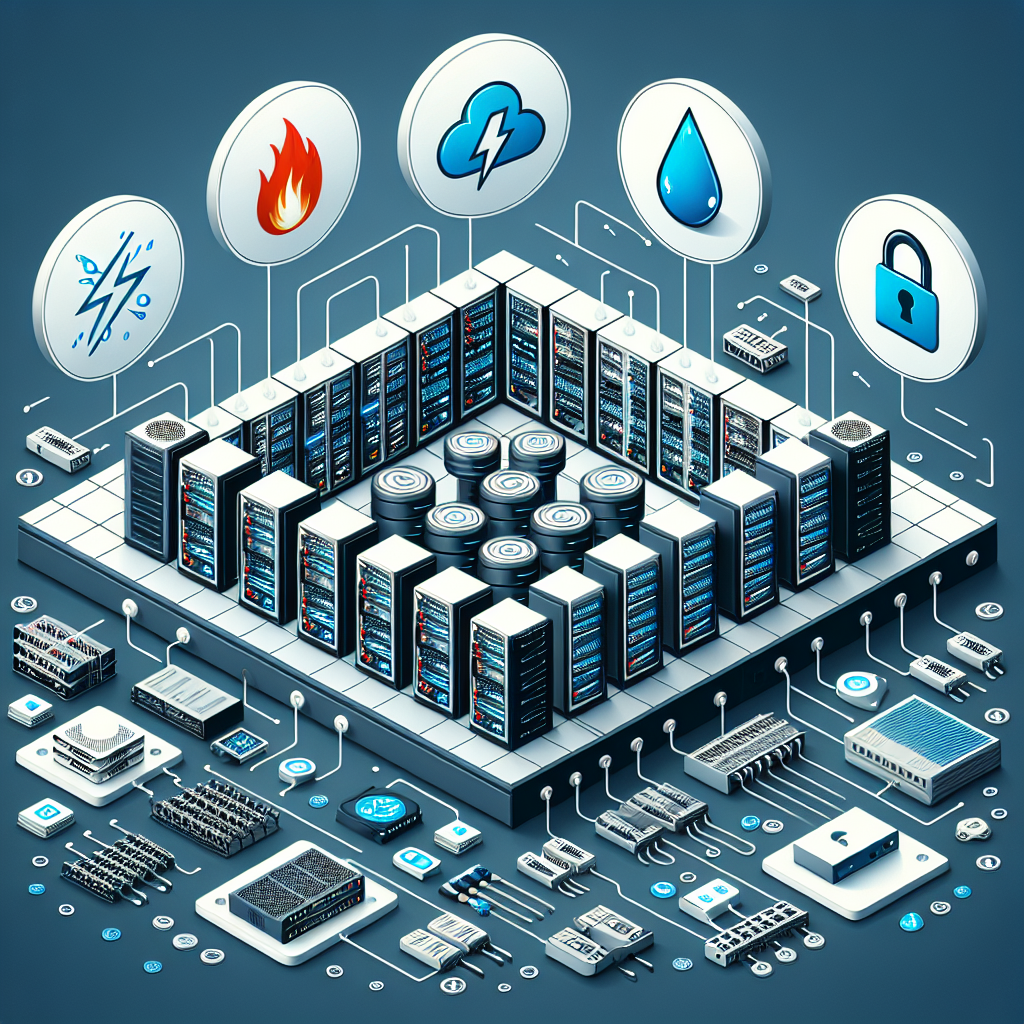The Top Risks to Consider in a Data Center Risk Assessment
Data centers play a crucial role in the operation of modern businesses, serving as the backbone of the digital infrastructure that supports everything from online commerce to cloud computing. However, with the increasing reliance on data centers, the risks associated with their operation have also grown. Conducting a comprehensive risk assessment is essential to identify and mitigate potential threats to the data center’s security, reliability, and efficiency.
Here are some of the top risks that should be considered in a data center risk assessment:
1. Physical security risks: Data centers house sensitive and valuable equipment, making them prime targets for physical security breaches. Unauthorized access, theft, vandalism, and sabotage are all potential threats that can compromise the data center’s operations and put sensitive information at risk.
2. Power and cooling failures: Data centers require a constant and reliable power supply to keep servers and other equipment running. Power outages, surges, and fluctuations can cause downtime and data loss. Inadequate cooling systems can also lead to overheating and equipment failure, affecting the data center’s performance and reliability.
3. Natural disasters: Data centers are vulnerable to natural disasters such as earthquakes, floods, hurricanes, and wildfires. These events can cause physical damage to the facility, disrupt power supply, and lead to data loss. Implementing disaster recovery and business continuity plans is essential to minimize the impact of such events on the data center’s operations.
4. Cybersecurity threats: Data centers are prime targets for cyberattacks due to the valuable information they store. Malware, ransomware, phishing, and DDoS attacks can compromise the security of the data center, leading to data breaches, theft, and downtime. Implementing robust cybersecurity measures, such as firewalls, encryption, and intrusion detection systems, is crucial to safeguard the data center’s infrastructure.
5. Human errors: Human errors, such as misconfigurations, negligence, and unauthorized access, can pose significant risks to the data center’s security and reliability. Training staff on best practices, implementing access controls, and conducting regular audits can help mitigate the risk of human errors in the data center.
6. Compliance and regulatory risks: Data centers are subject to various compliance regulations and industry standards, such as GDPR, HIPAA, and PCI DSS. Failure to comply with these regulations can result in hefty fines, legal liabilities, and reputational damage. Conducting regular audits and assessments to ensure compliance with relevant regulations is essential to avoid potential risks.
In conclusion, conducting a thorough data center risk assessment is essential to identify and mitigate potential threats to the data center’s security, reliability, and efficiency. By addressing the top risks mentioned above, data center operators can ensure the smooth and secure operation of their facilities, safeguarding sensitive information and maintaining business continuity.


